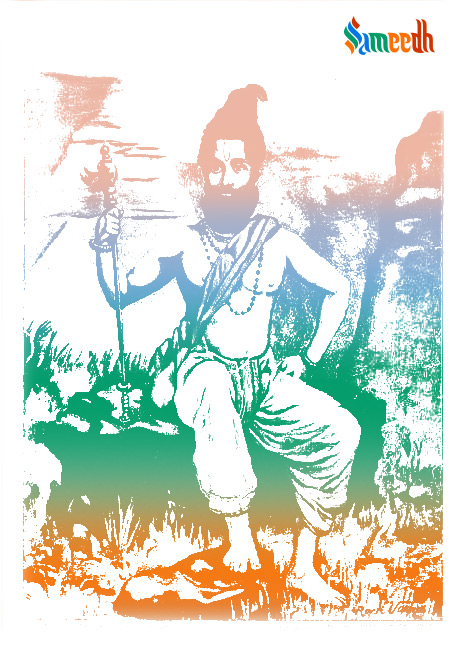The sixth incarnation of the god of preservation in Hinduism

Parshuram is the sixth Reincarnation of lord Vishnu. The birth of Parshuram was amidst the Tretra Yug, an era in Hinduism. This form of Vishnu is associated with being a fierce warrior, one attributed with aggression. Lord Vishnu is the Hindu god of preservation and protection. Vishnu, lord Shiv – god of destruction and Brahma – god of creation, together form the Trimurti or holy trinity. Vishnu strikes a balance between the creator and destroyer by preserving and protecting the quotient of good. Vishu had taken above 10 manifestations or Reincarnations also known as the Dashavatar to restore dharma, religion, guiding the traits of righteousness and justice. These rebirths were primarily to put an end to evil activities and destroy negative entities to protect all beings. The great Indian epic of Mahabharat and ancient Hindu religious scriptures such as Puranas and Vedas too contain tales of Parshuram’s vigour and strength.
ORIGINS
The name translates to Ram with an axe where Parshu means a curved knife. Parshuram was recognized by various names such as Ram Jamadagnya, Ram Bhargava and Veeraram. He is also known to be an immortal on the planet, as the term Chiranjeevi is affiliated with him too. During one such incident when the ocean was advancing towards the lands posing as a threat to the Indian lands of Kokan and Malabar, Parshuram fought it with might and vigour. Today, that stretch of land between the states of Maharashtra and India is identified as ParshuramKshetra.
Parshuram was born to the great Brahmin sage Jamadagani and Renuka around Janapav Hills which are now situated in the city of Indore. Although Parshuram was born in a Brahmin family, he learnt warfare, weaponry and practised his battle tactics. He clearly exhibited the trait of a warrior or Kshatriya, another caste of Hinduism, sometimes known as Brahma-Kshatriya.
His father was killed during a dispute which was followed by a combat with king Kartaviriya over the possession of his celestial cow, Surabhi, which fulfils wishes and desires of people. In Parshuram’s absence, his father took his last breaths. To avenge his father’s death, Parshuram went to battle with Kartavirya and his sons, killing every single offspring of his. Because of his uncontrollable rage, he went on killing Kshatriyas as their caste was the one to kill his father. He was also the one to stay on the path of righteousness.
Even though he was a reincarnation of lord Vishnu, Parshuram was a devout follower of Shiv and it was as a blessing that he received the mighty axe. It is also believed that Shiv was the one to teach war strategies to Parshuram. He further passed down this knowledge and set of techniques to fighters like Bhishma, Dronacharya and Karna from Mahabharat. It is believed that he would be tutoring Kalki too, the tenth avatar of Vishnu in Kali yug.
PARSHURAM JAYANTI
This Indian festival marks the birth date of Parshuram and is celebrated cheerfully across the country. This is identified with the lunar calendar, which is why there is no set date in the roman calendar for this. The Hindu festival of Akshay Tritiya where worshippers buy gold as a sign of good luck, too takes place on the same day. As Hindus and Vaishnavas – worshippers of lord Vishnu, truly believe that Parshuram is an immortal god, he is not commemorated like other gods and goddesses. Many Hindus keep a fast to seek blessings from this god. Lord Vishnu is essentially the one to which the devotion is displayed towards as Parshuram is only an avatar of Vishnu. Mantras like Vishnu Sahastranam or thousand names of Vishnu are chanted amongst devotees. Prayers, praises, flowers, sweets, fruits, arti are offered to the deity.
